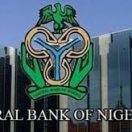The Federal Government has formally published Nigeria’s new tax reform laws in the official gazette, signaling a landmark transformation of the nation’s fiscal framework.
Signed into law by President Bola Tinubu on June 26, 2025, the reforms introduce a modern foundation for taxation, administration, and revenue collection.
The reform package comprises four key legislations:
- Nigeria Tax Act (NTA), 2025
- Nigeria Tax Administration Act (NTAA), 2025
- Nigeria Revenue Service (Establishment) Act (NRSEA), 2025
- Joint Revenue Board (Establishment) Act (JRBEA), 2025
Key provisions of the reforms include:
- Exemption from corporate tax for small businesses with turnover below ₦100 million and assets under ₦250 million.
- A potential reduction of the corporate tax rate for large firms from 30% to 25%, at the President’s discretion.
- Introduction of top-up tax thresholds: ₦50 billion for local firms and €750 million for multinationals.
- A 5% annual tax credit for eligible projects in priority sectors.
- Permission for companies conducting transactions in foreign currency to settle taxes in naira, using the official exchange rate.
These reforms are expected to simplify compliance, support business growth, and strengthen Nigeria’s revenue system.
Source: Fundvine capital & securities












